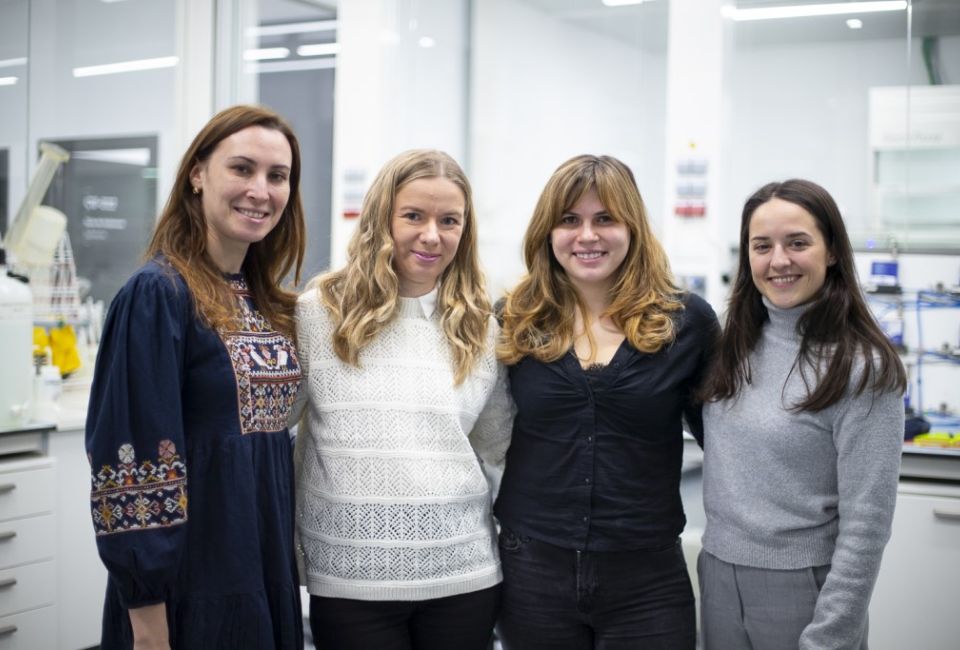
The "#ScienceForUkraine" initiative celebrates two years as an NGO helping Ukrainian research staff
The "#ScienceForUkraine" initiative, which arose spontaneously in the academic world in order to support Ukrainian research personnel after the Russian military invasion of Ukraine on 24 February 2022, has celebrated its second anniversary, and has been officially established as a Non-Governmental Organization (NGO) based in Latvia. One of the first actions of the new NGO was to announce the launch of a programme to support the mobility of Ukrainian research personnel, which will be supported by a series of fundraising campaigns. This programme will provide financial assistance of up to €500 for each participant, which can be used by scientific staff affiliated to Ukrainian universities to cover travel expenses, accommodation and their participation in activities related to their research, and attendance at scientific congresses in particular.
The "#ScienceForUkraine" initiative, which arose spontaneously in the academic world in order to support Ukrainian research personnel after the Russian military invasion of Ukraine on 24 February 2022, has celebrated its second anniversary, and has been officially established as a Non-Governmental Organization (NGO) based in Latvia. One of the first actions of the new NGO was to announce the launch of a programme to support the mobility of Ukrainian research personnel, which will be supported by a series of fundraising campaigns. This programme will provide financial assistance of up to €500 for each participant, which can be used by scientific staff affiliated to Ukrainian universities to cover travel expenses, accommodation and their participation in activities related to their research, and attendance at scientific congresses in particular.
One of the important tasks in the implementation of this mobility support programme will be undertaken by the BETA Technology Center at the University of Vic - Central University of Catalonia (UVic-UCC), which has played a prominent role as the coordinator of "#ScienceForUkraine" in Spain since the programme's inception. The researcher Galyna Ryabukha will provide support in processing applications and dealing with participants. Ryabukha, who joined the team at the centre thanks to an offer organised through "#ScienceForUkraine", highlights the importance of helping to "guarantee the ongoing participation of Ukrainian scientists in the global scientific discourse" in programmes like this one.
After two years of coordinating volunteers from all over Europe, the BETA Technological Center sees the "#ScienceForUkraine" initiative's new status as an NGO as a major step forward. "We are very pleased that this has happened. Promoting scientific collaboration and supporting Ukrainian science is still a major challenge, and the work that has been done over these past two years must be maintained," explains Albert Palou, head of Institutional Relations and Communication at the BETA Technological Center.
The BETA Technological Center has contacted more than 70 universities
The network around "#ScienceForUkraine" that was created two years ago has created more than 5,000 potential jobs around the world. As a result, "#ScienceForUkraine" has been a key platform for initiatives supporting Ukraine's academic and scientific sector in the global arena since it was launched.
Over these two years, the BETA Technological Center has established direct links with more than 70 Ukrainian universities in 14 different cities, to find out about their situation and offer them support through "#ScienceForUkraine". In addition to providing job opportunities, the Beta Technological Center has directly advised a large contingent of Ukrainian researchers, connecting them with hundreds of job offers in Spain and Portugal, as well as in other European countries. This personalised support has been essential for many science professionals who have been affected by the crisis in Ukraine.
Two years later, priorities have changed. "Supporting the Ukrainian scientific community remains a priority for us," explains Sergio Ponsá, the director of Beta Technological Center. "The situation is still very difficult, but we are still doing what we have done since day one; in other words, helping scientists to be able to do their work." He points out that "we are including Ukrainian institutions in some of the new European projects that we will begin soon, to accompany them on their path towards EU standards."
SURE-AMR - a project to support the Ukrainian research ecosystem
A few weeks ago, the European Commission announced that the Horizon Europe Programme would be funding the SURE-AMR project, led by the Institute of Molecular Biology and Genetics (IMBG) in Kyiv, with the Beta Technological Center strongly involved. The primary objective of this new project, which will be launched at a meeting in Vic in the coming months, is for various European institutions to support the IMBG to enable it to enhance its scientific reputation, expand its international working networks, and promote scientific excellence in the study of resistance to antibiotics from a perspective of One Health, or in other words, integrating human, animal and environmental health.
With a view to Ukraine's accession to the EU in the future, SURE-AMR aims to contribute to the Ukrainian research ecosystem moving towards some European standards, and to provide an introduction to the dynamics involved in participating in other international consortia like this one. In practice, the project aims to enhance research and knowledge transfer through case studies, training researchers and other IMBG staff, and to foster collaboration between academia, the Ukrainian health sector and other stakeholders. It also aims to create international networks and an international mobility programme.
In the scientific realm, the project aims to expand the IMBG community of researchers working in the field of resistance to antibiotics, and to make their research useful at the local level in order to improve public health and environmental quality, both in Ukraine and in the EU. The anticipated results of SURE-AMR include being able to develop systems for the prevention, analysis and mitigation of this phenomenon, based above all on new protocols, methodologies and innovative solutions for the health and environmental sectors.
The Beta Technological Center researchers Galyna Ryabukha and Iryna Kohut are taking part in this project, as is Ada Domingo, a project manager in the Sustainability Governance Area at the centre.